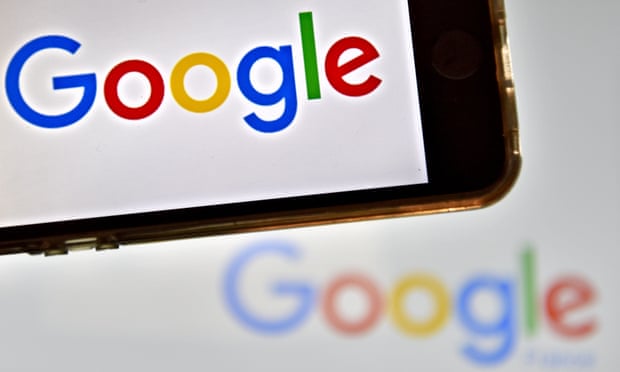France’s final approval of a 3% digital tax may open the door to a host of legal challenges by companies, on top of the trade investigation by the U.S.
The
tax bill, approved by the French parliament July 11, would be one of the first digital taxes collected in Europe this year, making it a prime target for a showdown in European courts.
Challenges on the grounds that the tax violates French or EU law, or bilateral tax treaties, could result in the tax being stalled or overturned, although a final outcome could be years away.
Expect a lot of legal challenges, said Giuseppe de Martino, president of the French tech industry group ASIC. “It’s a taxation on revenues (and not on profits) encouraging companies to reduce their level of investments and innovation,” he said.
Tech companies fear they’ll face a complicated patchwork of unilateral digital tax measures as more than a half dozen countries consider similar proposals. France’s tax, due later this year, would impose the tax on companies that make more than 750 million euros worldwide ($845 million) and more than 25 million euros in France from certain digital activities.
The tax would hit about 30 companies—including Facebook Inc. and Alphabet’s Google Inc. Other countries such as the Czech Republic and Austria are considering their own versions of digital revenue taxes—those two countries at 7% and 5%, respectively.
Tech giants face payments in the tens of millions under the measure. France forecasts that the tax could bring in as much as 500 million euros a year. If the tax is successfully challenged, those payments could be refunded. And if the French tax is quickly found to violate EU law, countries contemplating similar measures may be deterred from pressing forward.
The White House announced plans July 10 to use a “301 investigation” to look at whether the tax would hurt U.S. technology firms, and suggest remedies.
Companies hoping to slow down or stop the tax, or see a refund of the payments they’ve made, have a few options.
Constitutionality
As soon as they’re assessed for the tax, companies can bring a case against the French tax authorities, arguing they shouldn’t have to pay it because it’s discriminatory. They’d likely point to the fact that it hits only very large companies, among other factors, practitioners said.
“Several provisions allow us to consider that the tax does not comply with the French Constitution,” said de Martino. Those factors include arguments that the tax does not treat companies equally before the law, he said.
The tax is being referred to France’s Constitutional Counsel for consideration of its validity under French law.
EU Freedoms
European Union member states must observe four “fundamental freedoms”: the free movement of goods, services, capital and labor under European treaties. Companies can argue that the DST violates the freedom to provide services, said Robert van der Jagt, chair of KPMG’s European Tax Center, based in Amsterdam.
The company would bring a case against the French tax authority in French court, taking the position that the French DST is contrary to the freedom to provide services as laid out in the EU treaty, he said. If the court thinks the company has a good argument, it can refer the case to the European Court of Justice as a question of EU law interpretation.
Ultimately, if the courts find against France, it would be forced to repeal the measure—which would be a very good outcome for the companies affected by the tax. For that reason, companies may be more likely to pursue this challenge than a state aid case, van der Jagt said.
But that outcome could be a long way off. A case moving through the EU court can take up to 10 years to resolve, he said.
State Aid
EU member states aren’t allowed to unfairly help one company or set of companies, but not others—like providing subsidies to only domestic companies. Companies can argue that the tax violates the principles of state aid because it only targets companies over a certain size threshold, and that it seems designed to specifically hit the “GAFA” companies—Google, Amazon, Facebook, and Apple—and other tech giants.
“By definition a tax is a general measure based on abstract principles that applies across the board to everybody,” said Jose Luis Buendia, a partner at the law firm Garrigues in Brussels who works on EU law. “But if you start by naming the tax after the guy who’s going to pay, I think you have a huge problem from the beginning – a serious conceptual and fundamental problem.”
A company can bring a state aid complaint to the European Commission once the tax is enacted into law, Buendia said. Then the Commission could either reject the complaint, or open an investigation to decide whether the tax is in violation of state aid principles. The Commission’s decision can be appealed at either level, by either France or the companies. Appeals then move through the EU court system.
“It’s very difficult to argue that this is not vulnerable to challenge,” said Pablo Ibanez Colomo, a professor of law at the London School of Economics.
But two recent state aid cases involving progressive taxes in Poland and Hungary have complicated the likely outcome for the French tax, he said. In those cases, the European Commission is arguing that progressive taxes do constitute state aid. The EU general court recently rejected the Commission’s arguments in both cases. If the Commission appeals, it will be hard for it to also say that the French tax—which uses a threshold to only net the largest companies—is not also size-based state aid discrimination.
Within France, critics of the tax are pushing the government to use a procedure called notification: Sending the legislation to the Commission to review ahead of time, de Martino of ASIC said.
The advantage to a state aid challenge is that the Commission—if it chooses—could direct France to suspend the tax during the investigation, Ibanez Colomo said.
But the outcome might not really help the companies hit by the tax, van der Jagt said. The resolution of a state aid case normally involves the company that received the aid returning the money to the country that provided it. There’s no guarantee that a state aid decision against the DST would result in compensation for the companies that paid the tax—for example, the Commission could order France to tax all companies, not just large ones.
Tax Treaties
Companies could bring a court challenge against the French tax authority arguing that they’re being taxed in violation of France’s bilateral treaty with the company’s home country—the U.S. or Ireland, for example.
Countries sign bilateral tax treaties to help prevent companies from being taxed twice on the same income.
Treaties also contain agreements between countries on a set of parameters defining the circumstances in which companies can be taxed. For example, standard tax treaties contain permanent establishment rules that only let a country tax a company that meets a certain physical presence threshold in that jurisdiction.
The French government has claimed that, as turnover tax, the DST isn’t covered by any of its existing tax treaties. This claim could be challenged, however, said Paris-based lawyer Sandra Hazan, co-head of Europe and global tax groups at law firm Dentons.
Companies bringing the challenge would have to successfully argue that a tax on revenue should be covered by an income tax treaty. Once that hurdle is cleared, van der Jagt said, the next question for the court to decide will be whether France, as a source country, has the right to tax the company.
“I think the outcome is going to be no, because there’s no permanent establishment in France,” he said. “That results in zero tax”—an outcome as favorable as a court decision in a freedom of services case.







